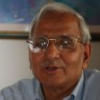The Search Committee Must Search Transparently

On January 27, after much debate, drama and blame game, the Appointment of Chief Election Commissioner and Other Election Commissioners Act, 2022 was passed in parliament. The law is nothing but past circulars wearing a legal garb. Many have serious concerns about its appropriateness, and they are in favour of its complete overhaul, which is unlikely to happen in the near future. In the meantime, a search committee under the new law has been formed. Therefore, a crucial task now is to try to influence the implementation of the law in such a way that the prospect for appointing appropriate persons to the Election Commission is enhanced.
Despite being called a "search" committee, what usually happens in such committees can be understood from the words of retired Justice Abdul Matin of the Appellate Division of Bangladesh Supreme Court: "I was first a member of the search committee for the appointment of the Anti-Corruption Commission and later the chairman of the search committee for the appointment of the Human Rights Commission as well as the Information Commission. The new law has the same formula as that of the previous search committees. In this system, the chairman or members (of the committee) can do very little. The Cabinet Division hands over a few envelopes with biographies of some people of the government's choosing. There is no opportunity for scrutinising and selecting anyone from outside." (Prothom Alo, January 23, 2022).
It is clear that the search committees of the past basically played the role of a post office, instead of conducting a genuine search, which resulted in appointing wrong individuals to the Election Commission. Therefore, in order to find the appropriate individuals for appointment to the commission, the search committee must come out of its traditional way of working and instead conduct a thorough search.
The responsibilities of the search committee, as laid out in Section 4(1) of the Act, are: "The search committee shall act in accordance with the principles of transparency and neutrality and shall make recommendations to the President for appointment to the posts of Chief Election Commissioner and Election Commissioner, taking into consideration the qualifications, disqualifications, experience, honesty and reputation of the individuals, as described in this Act."
Section 3(2) of the Act empowers the committee to determine the modus operandi of its meetings for performing its functions and responsibilities. We feel that if these two provisions are properly implemented, it will be possible for the committee to recommend qualified, experienced, honest and reputable persons for appointment to the Election Commission based on a genuine search carried out with transparency and neutrality.
The search must begin by inviting names of potential candidates for appointment to the commission. Section 3(3) of the law states that the search committee may "call for names from political parties and professional organisations". This does not, however, preclude the committee from inviting others to submit names, and we request the committee to show flexibility in this regard. The risk of appointing someone to the Election Commission from the names submitted by political parties is that if those become public, which is likely to happen, the appointed person may be, sometimes unfairly, accused of party loyalty.
According to Section 5 of the Act, the persons considered for appointment must be Bangladeshi citizens of 50 years of age, with 20 years of administrative experience. According to Section 6 of the law, insolvents, persons of unsound mind, foreign citizens, convicted war criminals and holders of office of profit are ineligible for appointment. There are thousands of people in Bangladesh who meet these eligibility/ineligibility criteria, so it is possible for the committee to include any of them among the 10 individuals to be finally recommended to the President.
But a person does not necessarily become suitable for appointment in a very important and independent constitutional body like the Election Commission just by fulfilling the eligibility/ineligibility criteria of Sections 5 and 6 of the Act. The commission must carry out many sensitive responsibilities as prescribed in Article 119 of the Constitution, including holding parliamentary elections. Persons with higher or "superior" qualifications are required to perform these responsibilities. As required by Section 4(1) of the Act, they must, at the very least, have high integrity and a good reputation—reputation for honesty, neutrality, courage, and wisdom.
Popular opinions are the best barometers of people's reputation for having honesty and integrity. In fact, public opinions are the only indicators of such qualities. For example, if the names of the individuals being considered are disclosed, the search committee will have a good idea, through public reactions, about whether their ways of life are consistent with their known income, whether there are any credible allegations of corruption against them, and whether they have any party affiliation. Therefore, making public the names of the individuals considered for appointment to the Election Commission is the only way to assess their reputation, based on which the search committee will be able to prepare a panel of appropriate candidates for recommendation and keep the unwanted ones away.
We request the search committee to make public the names under consideration twice. After receiving the names proposed for appointment to the Election Commission from various sources, a preliminary list should be prepared—say, of 20 individuals—and those names should be made public, subject to their consent, by the search committee.
Our request to the search committee will be to interview and hold a public hearing on those in the preliminary list, based on which they can prepare a short list of 10 individuals for recommendation to the President. We also request the committee to prepare a report stating the justifications for selecting those included in the short list. We would further request the committee to make public both the short list and the report prepared three days prior to sending them to the President, so there will be enough time for the public to react. Only with such disclosures, the search committee will be able to meet the principles of transparency and neutrality as laid out in Section 4(1) of the Act.
It may be pointed out that Professor Syed Manzoorul Islam, a member of the last search committee, also emphasised the importance of transparency in the appointment process through public hearings. A report published in Prothom Alo (February 12, 2017), based on an interview of Professor Islam, claimed that the controversy about the present CEC's past could have been avoided if transparency had been exercised through a public hearing.
To conclude, in the past, the government was able to appoint its loyalists to the Election Commission as the search committee acted like a post office, and those partisan individuals destroyed our electoral system and deprived the people of their voting rights. Another partisan Election Commission could lead us into a catastrophic future. Therefore, in the greater interest of the nation, the newly formed search committee must recommend appropriate people for appointment to the commission. That will be possible only if the search committee adheres to the principles of transparency and neutrality as required by Section 4(1) of the Act. The famous American justice Louis Brandeis aptly said, sunlight is the best disinfectant.
Dr. Badiul Alam Majumdar is Secretary, SHUJAN: Citizens for Good Governance.

 For all latest news, follow The Daily Star's Google News channel.
For all latest news, follow The Daily Star's Google News channel. 



Comments